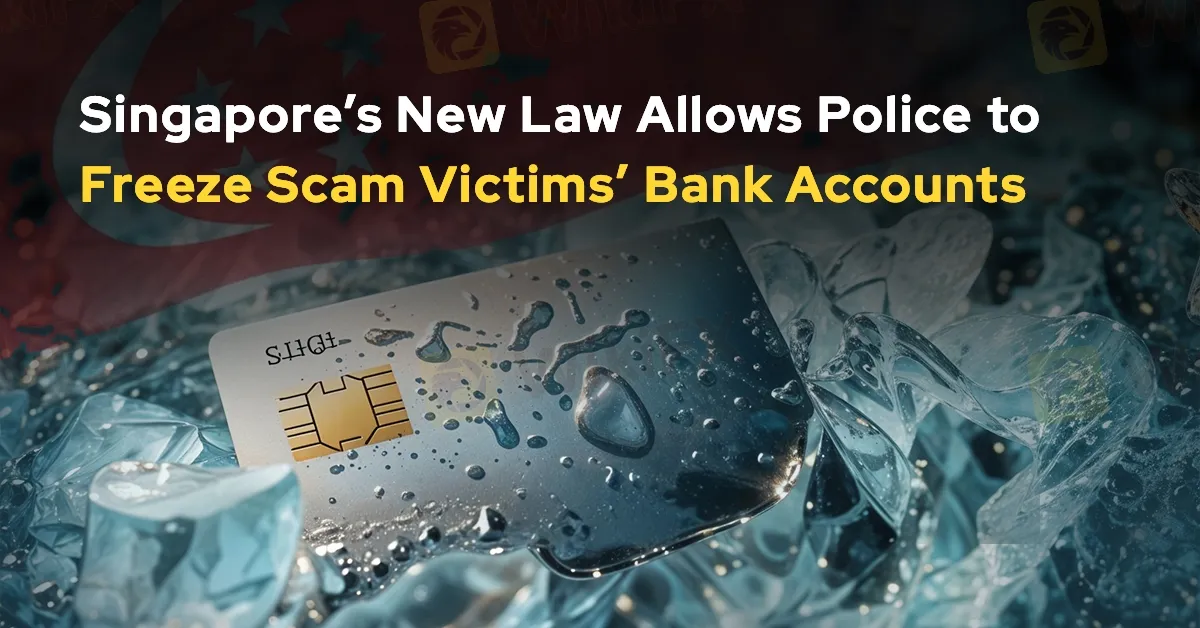简体中文
繁體中文
English
Pусский
日本語
ภาษาไทย
Tiếng Việt
Bahasa Indonesia
Español
हिन्दी
Filippiiniläinen
Français
Deutsch
Português
Türkçe
한국어
العربية
Singapore’s New Law Allows Police to Freeze Scam Victims’ Bank Accounts
Abstract:Singapore has enacted a new law enabling police to freeze bank accounts of scam victims as a last-resort measure to prevent financial losses.

Singapore has enacted a new law enabling police to freeze bank accounts of scam victims as a last-resort measure to prevent financial losses. The legislation empowers authorities to issue restriction orders to banks when they determine that a victim is at risk of transferring money to scammers, withdrawing funds for fraudulent purposes, or applying for loans to benefit fraudsters.
Scams have become a significant concern for the city-state, which is known for its status as a wealthy financial hub. In the first half of 2024, there were 26,587 recorded scam cases, resulting in losses of S$385.6 million (US$283.34 million or RM1.27 billion), according to police data. In 2023, victims lost S$651.8 million, while 2022 saw a record loss of S$660.7 million.
Restriction orders, which last for an initial period of 30 days, are designed to act swiftly to protect victims. Police can extend these orders up to five times or lift them earlier if deemed appropriate. Authorities will assess factors such as whether the victim has already transferred funds to scammers or remains in communication with them.

By default, these restriction orders will apply to Singapores seven major retail banks: OCBC, DBS, UOB, Maybank, Standard Chartered, Citibank, and HSBC. However, other financial institutions may also be included if necessary.
Sun Xueling, the Minister of State for Home Affairs, emphasised the importance of acting promptly to minimise losses. She stated that restriction orders should be imposed or lifted within hours, not days, to protect victims effectively. Sun also highlighted that in many cases, victims life savings could be at stake.
While the law aims to protect individuals, authorities have clarified that the responsibility cannot rest with them indefinitely. If a victim continues to engage with scammers after the maximum restriction order period, they must ultimately bear the consequences of their decisions.
The Ministry of Home Affairs has indicated plans to adapt the measure as needed. Officials are considering extending the scope of restriction orders to cover cryptocurrency exchanges, remittance services, and e-wallet providers.

Disclaimer:
The views in this article only represent the author's personal views, and do not constitute investment advice on this platform. This platform does not guarantee the accuracy, completeness and timeliness of the information in the article, and will not be liable for any loss caused by the use of or reliance on the information in the article.
Read more

Breaking News! Federal Reserve Slows Down Interest Rate Cuts
The latest Federal Reserve meeting minutes show that Fed officials are generally concerned about the upward risks to inflation, suggesting that future rate cuts may slow down.

Big News! UK 30-Year Bond Yields Soar to 25-Year High!
Following the successful auction of 30-year government bonds by the UK, the yield on 30-year bonds surged, reaching its highest level in 25 years. This increase reflects growing concerns in the market over the government's fiscal policies and large-scale debt issuance.

Beware of Fraudulent Letters: Malaysia’s Securities Commission Issues Warning
The Securities Commission Malaysia (SC) has raised an alarm over fraudulent letters and emails falsely claiming to be from the regulatory body. These fake communications are allegedly tied to illicit investment schemes that seek payments from unsuspecting investors.

Rising U.S. Corporate Bankruptcies Deepen Economic Concerns
In 2024, 686 U.S. companies filed for bankruptcy, marking the highest number since 2010.
WikiFX Broker
Latest News
Pepperstone Sponsored the "Aston Martin Aramco Formula One Team"
ACY Securities Integrates MetaTrader 5 to Enhnace Copy Trading Service
Soegee Futures Review: Should You Trust This Broker?
Malaysian Pilot Loses RM1.36 Million in UVKXE Investment App Scam
Indonesia officially joins the BRICS countries
Attention! Goldman Sachs Cuts Gold Target to $2910
Inflation Rebounds: ECB's Big Rate Cut Now Unlikely
Carney \considering\ entering race to replace Canada\s Trudeau
High-Potential Investments: Top 10 Stocks to Watch in 2025
Why Is Nvidia Making Headlines Everywhere Today?
Currency Calculator






